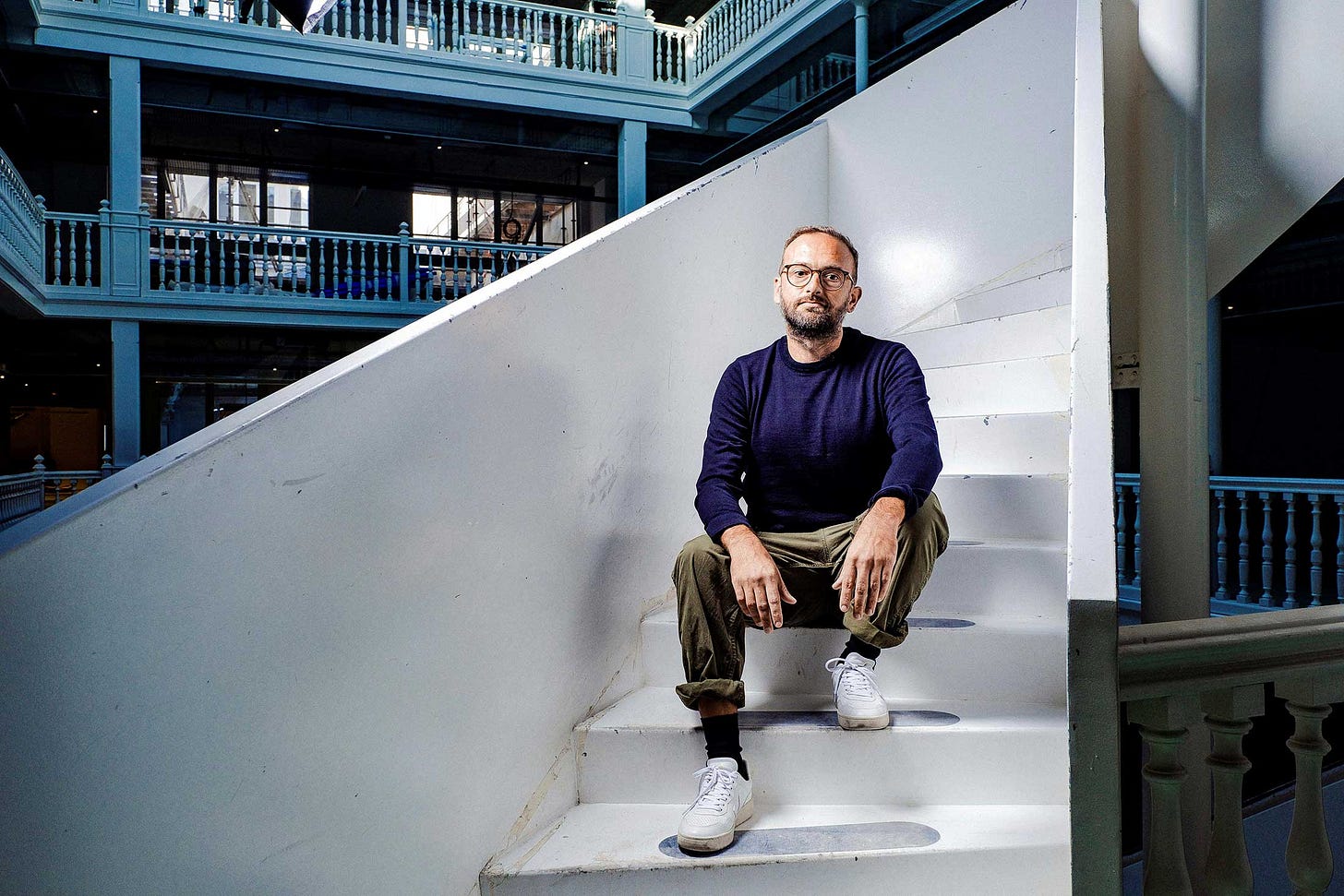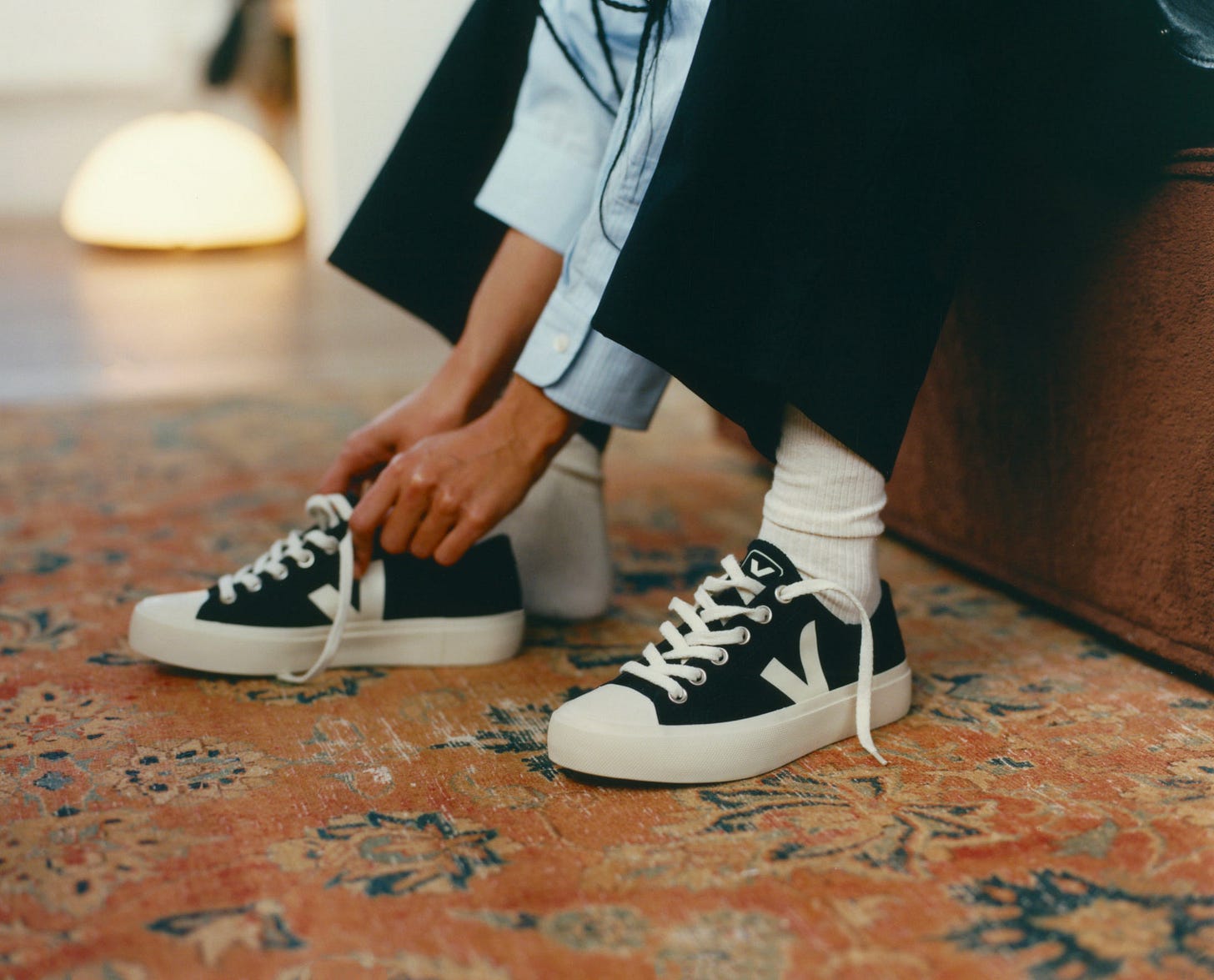A conversation with Veja co-founder Sébastien Kopp
A Paris-born ethical fashion success story
By now, you’ve seen them everywhere.
Veja is the ethically-produced answer to Stan Smith, Converse or Vans, sported by everyone from toddlers to retirees and a few members of English royalty in between. The sneak with the unmistakable V on each side has been my own personal favorite casual shoe for nearly ten years. So naturally, the brand was destined to come up in conversation with the journalist Esha Chhabra, who chronicled the founders’ efforts in her book Working to Restore, for my two special fashion episodes of The New Paris Podcast. (P.s. Huge thanks for your enthusiastic feedback! In case you missed it, Part II is available on Spotify, Apple, and Google).
Since it was the exemplary Parisian brand in our discussion, and one that I’ve reported about many times for magazines, I wanted to share the unedited version of my most recent interview with Veja’s co-founder, Sébastien Kopp. I sat down with him in the Veja HQ— formerly a furniture factory, the printing facility for the French Communist party, and an advertising agency —for a piece in Bloomberg Business Week that ran over the summer. Since there’s a paywall (and a not insignificant subscription fee), I thought I’d publish our full conversation here since it relates perfectly to the podcast episodes (read more about that here).
Long before “sustainable” was even a selling point for businesses, it has been the driving force behind the Paris-based footwear brand Veja. Founded by former bankers François-Ghislain Morillion and Sébastien Kopp in 2004, the high-school friends saw the sneaker not only as the cultural totem of their generation but a product that, like much of fashion, was the result of unethical sourcing and labor practices.
While most sneaker brands spend 70% of their budgets on advertising and 30% on raw materials, the duo was intent on investing their resources in fair wages and a clean supply chain. That translated to: No advertising or sponsorship deals; manufacturing in Brazil, sourcing Brazilian and Peruvian organic and regenerative cotton and Amazonian wild rubber from small cooperatives at two to five times the market price; once produced, they ship the shoes from Brazil exclusively by boat; and entrusting its logistics to the NGO Atelier Sans Frontières at Log'ins, a facility south of Paris which offers career opportunities to disabled individuals or people struggling with social inclusion.
Nearly twenty years on, 500 employees globally, 12 million pairs sold in 2022 with 260 million euros in sales (up from 180 million euros the previous year), and five boutiques (and still no investors), the B Corp-certified company remains committed to demonstrating that it’s possible to have a clean business that also treats people well without falling into greenwashing.
Here, Sébastien Kopp highlights the tenets of sustainable operations: transparency, traceability, and social justice.




